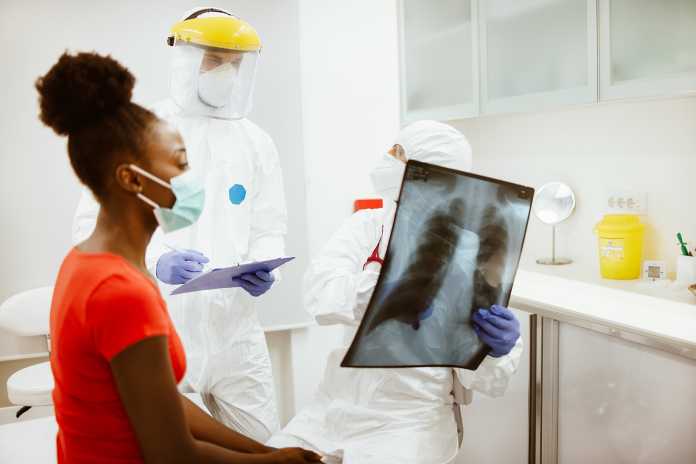In an effort to address the increasing incidence and deaths related to tuberculosis (TB) and silicosis, the Department of Health is contemplating the use of artificial intelligence (AI) technology. The aim is to speed up TB and silicosis screening and diagnostics.
This is in line with the World Health Organisation’s recommendation that member states use computer-aided detection software (CAD) to evaluate chest X-rays for screening and triaging for tuberculosis.
AI is technology that enables computers and machines to simulate human intelligence and problem-solving capabilities.
Conference with stakeholders to discuss AI intervention
The department’s spokesperson Foster Mohale explained the process. He said the department will host a conference of TB experts and stakeholders. This will be to discuss how Al can be used to enhance the diagnosis of both TB and silicosis in the country. The objective is to address the current backlogs.
Mohale said this will especially address the issue of people who contracted occupational health diseases while working in the mines.
“The current radiological methods, including chest X-rays, have been integral in diagnosing TB and silicosis among mineworkers.
“However, these methods have limitations, especially in differentiating between TB and silicosis. This is due to their similar radiological presentations as well as silico-tuberculosis,” said Mohale.
People who are expected to be part of the conference include occupational health professionals. Also representatives from mining companies and implementers of the TIMS initiative. Academic groups specialising in TB and silicosis research, miners and ex-miner representatives. Regulatory authorities, and technology companies too.
Crisis of 54k deaths, 280k infections each year
Statistics show that men die from TB at a rate of 1.7 times higher than that of women. And 54,000 TB deaths, with 280,000 infections in South Africa each year, is evidence of this.
In March, the TB Accountability Consortium marched to the Department of Health office in Pretoria. They demanded that the government declare TB a national crisis.
They said, the country has medicines available; however, people die of a treatable disease (TB).
“These individuals are at a much higher risk of progressing to TB illness because of their compromised immune systems.”



